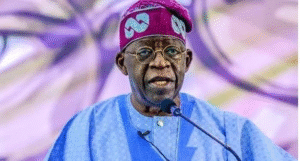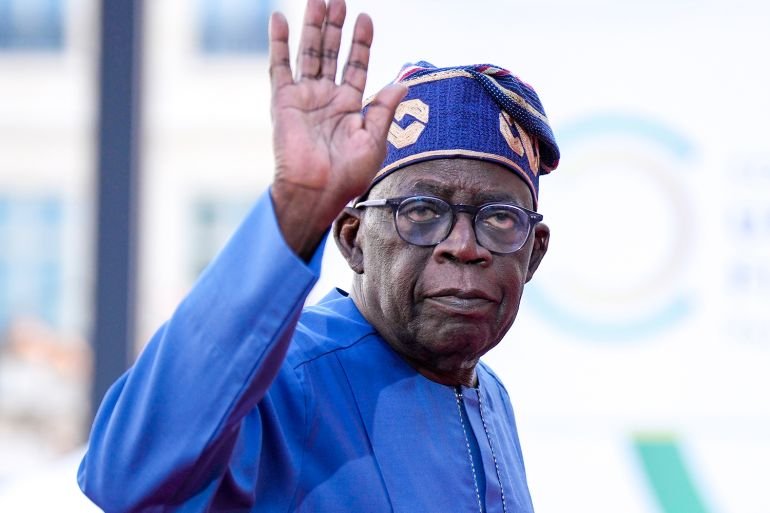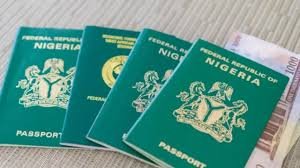Two years into President Bola Ahmed Tinubu’s administration, his ambitious reform agenda continues to spark debate across Nigeria. While federal officials hail his bold economic moves—such as the removal of fuel subsidies, the floating of the naira, and the launch of a national student loan program—many residents of Abuja, particularly in its satellite communities, say the promises of the Renewed Hope Agenda remain painfully out of reach. Juliet Jacob in Abuja, speaks with residents.
In Dutse, a densely populated satellite town on the outskirts of Abuja, life has become increasingly difficult. From unpaid wages and crumbling health services to poor infrastructure and soaring food prices, residents describe an atmosphere of growing despair. And beyond Abuja, the picture is even bleaker—with states like Benue and Plateau still mired in deadly violence, despite repeated government assurances.
Striking Teachers, Silent Government
Fatima Isah, a primary school teacher in Dutse, Abuja, has not been paid for over three months. Alongside many of her colleagues, she has been on strike since March, leaving public school classrooms empty and parents angry.
“We left before Easter. Nobody has paid us since,” she told Africa Health Report (AHR). “What is ‘renewed hope’ when teachers can’t even feed their families?”
Despite federal promises of salary reforms and increased education investment, frontline workers like Fatima feel abandoned. “They talk about new salary awards, but what about paying what’s already owed?” she asked bitterly.
Healthcare in Name Only
In Abuja’s Dutse Primary Health Centre, a once-reliable facility for pregnant women and young children, services have nearly ground to a halt. Musa Abdullahi, a community health volunteer, painted a grim picture.

“Sometimes, there are no drugs at all, and electricity is hardly ever available. Women arrive with lanterns to give birth,” he said. “We refer complicated cases to Bwari or Kubwa General Hospital, but many families can’t even afford the cost of transport.”
These scenes sharply contradict the federal government’s narrative of revitalized primary healthcare. For many in Abuja’s outskirts, policy announcements from the capital’s corridors of power feel disconnected from their daily struggles.
Potholed Promises: Infrastructure in Decline
Transportation in and around Dutse is a daily nightmare. The main road connecting the area to Kubwa is riddled with deep potholes and worsens each rainy season.
“It’s a death trap,” said James Ochai, a commercial tricycle rider, describing the stretch from Around 2-1 area to PHEAS 4. “Every government promises to fix it. Tinubu’s has done nothing.”
Since the removal of the fuel subsidy, Ochai says his profits have dwindled due to skyrocketing petrol prices. “We’re not seeing economic recovery—we’re just seeing hunger,” he said.
Mr. Eze, who runs a small boutique in Dutse, echoed this sentiment.
“Since President Tinubu assumed office, running my boutique has become incredibly difficult. Over the past two years, the situation has only deteriorated. With the sharp rise in the cost of living, customers simply can’t afford to shop like they used to. Some days, I sit in my shop from morning till evening without making a single sale. I go home empty-handed, yet the bills keep piling up — rent, electricity, and other expenses. It’s truly disheartening.”
Economic Shock, But No Therapy
Aminu Sulaiman, an economist and cooperative leader based in Abuja, believes the Tinubu administration’s economic reforms have yet to trickle down to the grassroots.
“There’s talk of palliatives, but we’re not seeing them here,” he said. “We applied for small business loans under the new programs—no one in our cooperative got a kobo.”
Aminu also questioned the sustainability of the reforms amidst soaring inflation. “A bag of rice is ₦80,000. That’s a whole month’s salary for some—if they’re even paid. How is that hopeful?”
Insecurity Without Intervention
Beyond Abuja, the situation is even more dire. In Benue and Plateau States, deadly attacks by armed groups have displaced thousands and claimed hundreds of lives in the last two years alone. Yet affected communities say the federal government has offered little beyond empty words and condolence visits.
“How can there be hope when people are being slaughtered in Benue and Plateau, and nothing is done?” Aminu asked. “It feels like the government has abandoned them—and the rest of us too.”
Hope Deferred
Two years after President Tinubu pledged to “renew hope” for Nigerians, many residents of Abuja—particularly those in struggling satellite towns like Dutse—say that hope has been deferred, if not entirely lost.
From unpaid teachers and broken clinics to impassable roads and rising insecurity, the reality on the ground stands in stark contrast to the optimistic tone of official speeches.
“We don’t need magic,” said Fatima. “We just want working schools, clinics with drugs, roads that don’t break our bones, and safety in our country. That’s what real hope looks like—not just words.”



